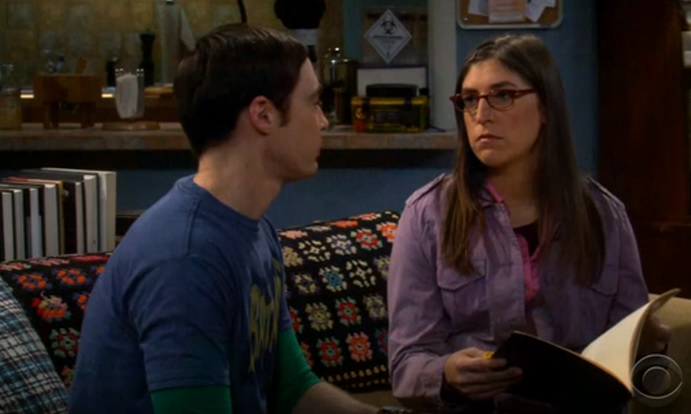There’s an episode of the “Big Bang Theory,” where one of the characters asks his new girlfriend to sign a 51 page, legally binding “relationship agreement.”
This is an exaggeration of a brilliant way of interacting, and one small change that can make a huge difference in and deepen our relationships.
We are talking about expectations vs. agreements.
Take a moment to write down what you expect from your partner. If you’re not currently in relationship, write down what you expected of your most recent partner.
Here is a sampling of my list. I expect my partner to:
>> be honest
>> please me sexually
>> be understanding of my need for time and space
>> be committed to our relationship
>> want to work out problems
>> be mature
>> hold space for me when I need it
Now that you have your list, circle each item that you have communicated to your partner. Likely, you’ll find that you mostly have things that are expected of your partner, but that have not been expressed.
Unconscious expectations are relationship agreements that we haven’t given our partner an opportunity to agree to or disagree with, yet we are holding them accountable for.
This is kind of like playing a game, but not teaching all of the rules.
It is not only unfair to our partners, but unfair to ourselves as well. How do we expect to get the relationship that we are looking for if we haven’t brought awareness to what it is that we expect from it? Expectations lead to misunderstandings, hurt feelings, confusion, rejection, and other disharmonies.
I’m not stating here that expectations are bad or wrong, or that we shouldn’t have them.
I am saying that we all do have them, and if they are unconscious, then that creates potential for miscommunication and disharmony. In fact, as I bring more consciousness to my intimate relationships, I have actually increased the number of expectations I have of my partner. The number of “must haves” or “deal breakers” has increased, but also, I have gotten better at bringing awareness to and communicating them with my partner. And I’ve witnessed my relationships become much more harmonious as a result.
Here’s an example:
One common expectation is that of sexual fidelity.
Ironically, in polyamorous relationships, this is intuitively understood to be an area that needs to be communicated, understood, and agreed upon. Common ways this could be expressed are: “We are free to sleep with whomever we want, but a sexual encounter must then be communicated.” Or: “We are free to sleep with whomever we want, but must use protection.”
In monogamous relationships, there is often an assumption that both parties agree to sexual fidelity. However, by discussing expectations around monogamy, the groundwork for trust, clarity, and communication is there.
Furthermore, there is often an assumption that both people have the same understanding of fidelity, but this is rarely the case. What counts a cheating? Some would say that flirting outside of the relationship is fine, others would not. Some would say that cybersex is allowable, others would not.
By changing from an expectation to an agreement, we do a few things:
We bring light to our own unconscious assumptions. We can see if they are clear, or nebulous, loose, and poorly understood, even to us. For example, many of us expect our partners to be “a perfect man” or “a perfect woman.” When they don’t live up to this unfair and unstated projection, we get angry at them, or get let down. If we have unclear expectations, this gives us the opportunity to explore our own needs and desires.
We can differentiate between “needs” and “strategies to have those needs met.”
Perhaps we discover that we have an expectation for our partner to communicate daily. With a bit of self-inquiry, we can unravel this. Daily communication is certainly not a need. Possible needs below it are security or intimacy, and the idea of speaking daily is a way of filling that need. When we have this realization, we can more easily let go of the strategy, and rather focus on the need. Often, we can then find new strategies that are mutually acceptable to both us and our partner.
For reference, here is the list of needs.
When we change from an expectation to an agreement, we give our partner a choice. We give them the ability to agree, or to disagree. We honor their autonomy and give them the option to say, “Yes, this is something that I can do and understand,” or “No, it is not.” By doing so, we give them accountability for their own actions in relationship.
Furthermore, placing expectations on others without their consent is a violent act, which is obviously anathema to love. When we really think about it, we don’t want to be violent to the ones we love. So the more that we can do to rid ourselves of this subtle, culturally inherited violence, the more we are able to offer a safe, loving space in which to open in vulnerability to deep intimacy and connection.
How do we make agreements in relationship?
First, we look at our list of expectations, asking our partner to do the same.
We’ll go through the list and see if there are certain expectations that we unconsciously have that we don’t actually want or demand of our partners. This is a good method for discovering some of our own inner-work through relationship, taking responsibility for our own situation rather than projecting it upon our partners.
Then go through the list, looking for any items that are unclear, and bring lucidity to these, perhaps checking if they are strategies rather than needs.
Now comes the time to sit down with our partner and to share our lists, asking for any clarifications needed, and making our relationship agreements. Either one person can go first, sharing all of their proposed agreements, working through them with their partner, and then switching. Or it can be done in a “one of mine, one of yours” method, until you’ve exhausted the entire lists of both parties.
In the unlikely event that there is an agreement that the other is not willing to commit to, first ask: Is this a need or a strategy?
If it is a strategy, then work to discover the need underneath the strategy, and work creatively together to come up with a different way to meet the stated need. If it’s just a need that our partner is not willing to meet, then the invitation is to hold to our truth, and honor our boundaries. Perhaps this relationship is not meant to be, in which case it’s better discovered sooner rather than later. In fact, this approach will help to distinguish between the relationships in which we are entirely wasting our time, and those worth dedicating ourselves to.
This may feel like it takes some of the mystery out of the relationship, or that it’s not such a romantic act. However this moves the relationship out of the realm of fantasy and projection into the realm of mature relationship, giving us the best chance for longevity, harmony, and true intimacy.
In my own relationship, this small investment of time has had an enormous, positive impact, bringing so much more consciousness, communication, transparency, stability, and harmony to us. I hope that it will do the same for you and yours.
~
Author: Amitayus Riha
Image: Youtube
Editor: Catherine Monkman








Read 40 comments and reply